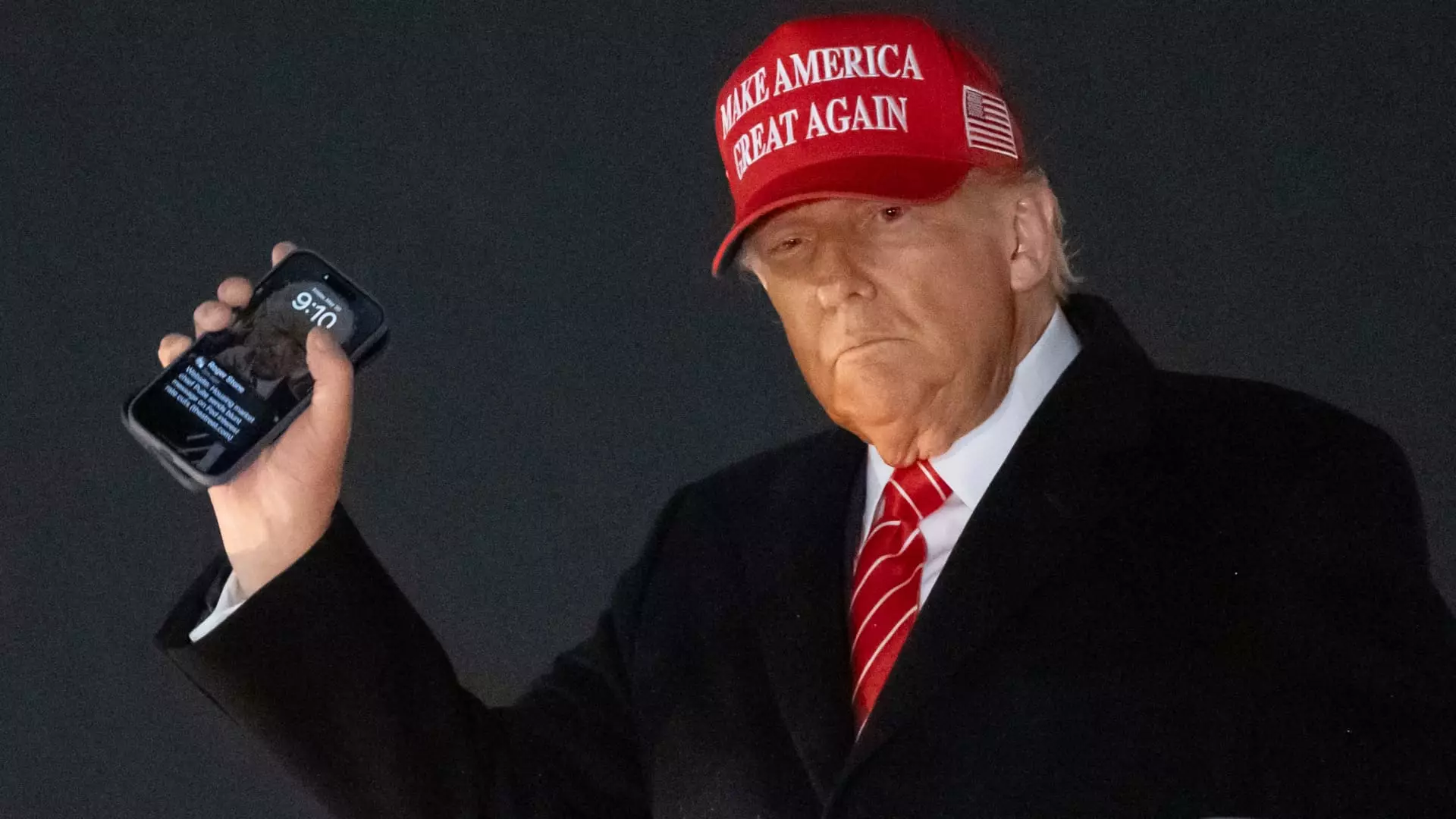In an audacious move that seems tailor-made for a reality TV show rather than the realm of serious business, the Trump Organization has introduced Trump Mobile, a mobile phone service accompanied by a surprisingly high-priced smartphone, the T1. At first glance, this venture appears to be a reflection of the founder’s well-documented penchant for seeking lucrative profit channels while riding the political coattails of his presidency. However, beneath the glimmering exterior lies a web of ethical questions and unsettling implications worthy of scrutiny.
The service’s pricing gig—$47.45 per month—raises eyebrows immediately. This plan, offering unlimited talk, text, and data, isn’t merely a telecommunications service; it’s a carefully orchestrated branding exercise, capitalizing on Trump’s notoriety. The monthly fee is significantly more than what seasoned competitors provide. Next to Visible and Mint Mobile, whose plans are priced at $25 and $30 respectively, Trump Mobile’s offering feels like a financially unviable option for budget-conscious consumers. Instead of being an affordable alternative in a saturated market, it illustrates a party of excess, just like its founder.
The Hands-Off Approach
What is perhaps most alarming about Trump Mobile is the murky nature of its operational model. The organization makes it abundantly clear that it is merely licensing Trump Mobile and its offerings, distancing itself from the actual development and manufacturing process. This hands-off approach raises legitimate concerns regarding quality assurance, customer service, and ethical business practices. How can consumers expect a coherent product experience when it’s clear that the company isn’t fully invested in its own merchandise? With the tagline “Make America Great Again” plastered across promotional screens, one wonders whether this is an earnest business endeavor or merely a publicity stunt aimed at harvesting profits, with little regard for consumer satisfaction.
Moreover, the announcement that Trump is raking in millions from various licensing agreements effectively highlights the ethical quandaries facing American corporations today. In an era where transparency is paramount, the slick marketing angle employed here serves more as a distraction than a genuine attempt at achieving customer loyalty. While the president reportedly made over $8 million in 2024 from licensing, where does that leave consumers who may question the integrity of such ventures?
Innovation or Imitation?
The technological features of the T1 smartphone, including a gold-colored casing etched with an American flag and a competitive camera setup, appear to lean more toward imitation rather than innovation. With specifications like 12 gigabytes of RAM and a 50-megapixel main camera, one might be lured into thinking that a groundbreaking product is being offered. However, the market is already saturated with superior devices at competitive prices. A $499 phone on par with existing flagship models cannot merely rely on patriotism and Trump’s endorsement for its justification. The venture reflects an unsettling trend where branding supersedes genuine technological advancement.
Moreover, the assertion that Trump Mobile gives users the “same coverage as the three nationwide phone service carriers” remains a dubious claim. The lack of clarity concerning the origins of its customer service further contributes to the uncertainty surrounding this business’s fundamental soundness. A representative’s refusal to disclose the location of the call center adds another layer of opacity, leaving consumers in the dark about the very service they’re paying for.
The Bigger Picture: Ethical Implications
As we look at the broader implications of this corporate expansion under a political brand, one cannot help but feel a twinge of concern. The burgeoning trend of intertwining commercial enterprises with political figures may signal a dangerous precedent for the American business landscape. It raises an inexorable question: should a president leverage his position for financial gain? The blurred lines between political responsibility and commercial profit suggest a disconcerting future—one in which trust in both our politicians and corporate entities will be further eroded.
In an age where consumers increasingly look for brands that align with their values, the Trump Mobile could be seen not only as a marketing gamble but as a reflection of the current political climate. As Trump continues to navigate the razor-thin line between his business interests and his political life, the real cost of such ventures may well be a loss of ethical integrity, further dividing an already polarized nation.


Leave a Reply